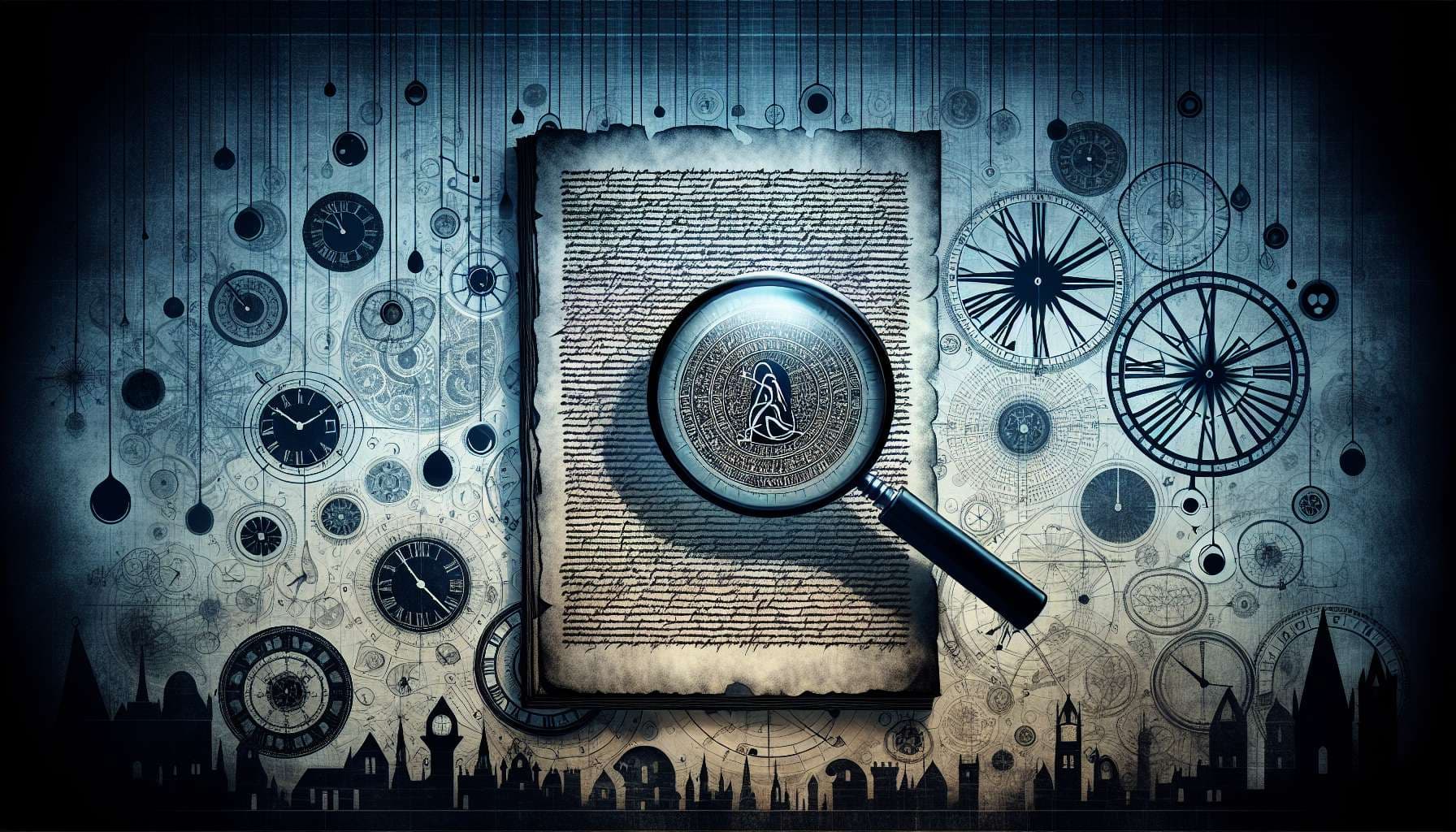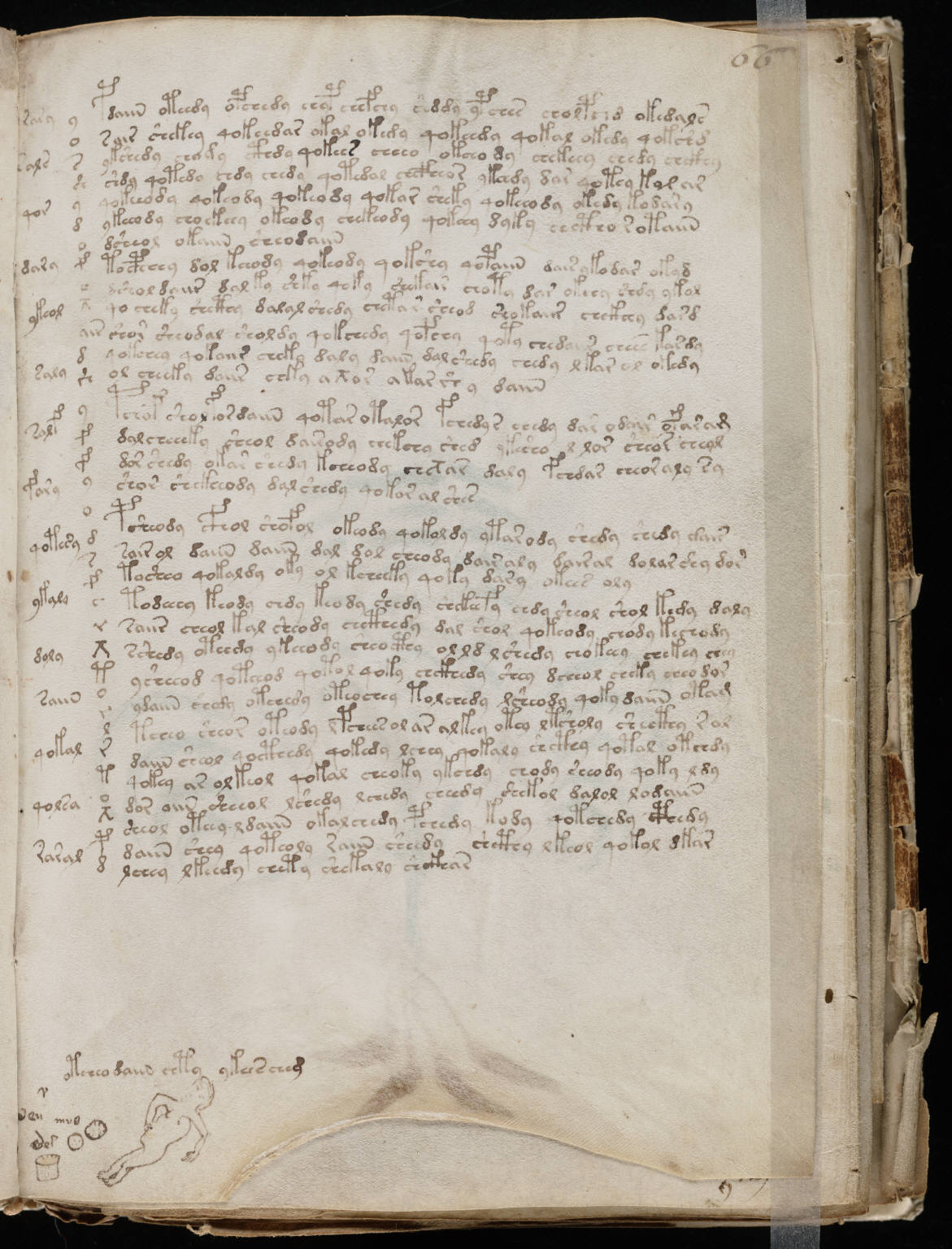

Will resolve YES if at least 50 percent of the writing of the manuscript is deciphered, or if it is proven to be a hoax or gibberish. The decipherment or debunking will have to be have majority scientific consensus of its validity.
People are also trading
There's an epistemic asymmetry between theories that claim the text is decipherable vs. theories that claim it's a hoax.
For theories that claim it's decipherable, it's easy to ask any professional cryptographer to simply check the work of a decryption algorithm. That's cryptographers' bread-and-butter, so they're happy to oblige. Easy!
For theories that claim it's a hoax, you'd need to convince professional cryptographers to assess an argument that has absolutely nothing to do with cryptography per se... because you're claiming that it's not even a cryptographic problem in the first place! Convincing academics that they don't need to "stay in their lane" is already a hard enough problem, but the problem is made even harder by the fact that the Voynich manuscript is a semi-taboo topic in the world of cryptography, analogous to studying UFOs. Worse yet, you'd be asking them to concede that the Voynich manuscript - which is famously associated with the field of cryptography - is actually a problem that their field is not equipped to address. This runs against their professional biases. But even if you get past all of that, there's still the bigger problem that the very nature of a hoax argument is necessarily probabilistic by nature and is very hard to "prove," in contrast with the simplicity of checking a decryption algorithm.
Taken together, this makes it very easy for people to fool themselves into denying that the manuscript is a hoax, whereas anyone who believes it's a hoax is in a much more vulnerable position and can have their views falsified more easily.
So assuming that the most popular hoax theory is correct (which I think is true), I don't think it's reasonable to expect a "scientific consensus" to coalesce around it any time soon.
If I can't practice, I can't practice. If I'm hurt, I'm hurt. Simple as that. It's not about that at all. But it's easy to talk about and sum it up when you just talk about practice; we're sitting here, and I'm supposed to be the franchise player, and we're in here talking about practice. I mean, listen, we're talking about practice. Not a game! Not a game! Not a game! We're talking about practice. Not a game; not the game that I go out there and die for and play every game like it's my last, not the game, we're talking about practice, man. I mean, how silly is that? We're talking about practice. I know I'm supposed to be there, I know I'm supposed to lead by example, I know that. And I'm not shoving it aside like it don't mean anything. I know it's important. I do. I honestly do. But we're talking about practice, man. What are we talking about? Practice? We're talking about practice, man! We're talking about practice! We're talking about practice... We ain't talking about the game! We're talking about practice, man! When you come to the arena, and you see me play. You see me play, don't you?
@soweliSon Base rates: Wiki says around 55 years since it came to Yale, 6 years to go until 2030. It doesn't seem particularly more likely to get solved in these six years compared to the previous 9 six year spans, and if so, the price should be <11%.
Further arguments on the YES side:
Perhaps we have better computers now for more in depth statistical analysis
Apparently Yale made it accessible online in 2020, perhaps an amateur will crack it.
Further arguments on the NO side:
11% is just an upper bound. A lot of the standard cryptanalysis techniques will already have been tried making the solution rate less likely over time.
Perhaps the whole thing is a hoax
I'll be a little conservative since I am uncertain about how these factors balance.
@BoltonBailey Regarding amateurs: google trends shows that interest in the manuscript is declining over time. So probably overpriced at 22%.
@BoltonBailey if it is proven to be a hoax that's a yes. I think that's pretty unlikely, I'm just pointing out that it goes to the yes side, and your comment suggests to me that if it is a hoax the question definitely resolves No.
@BrunoParga Ah yes, that's a good point I hadn't read that carefully. Still, proving it's a hoax seems hard, and also subject to the base rate analysis.
@BoltonBailey in the meantime, I'll just stick with my policy of going with whatever xkcd says: